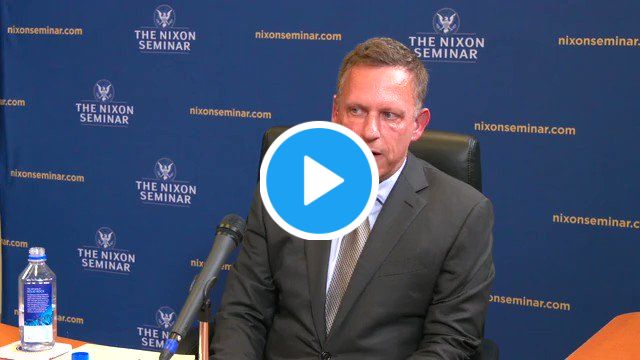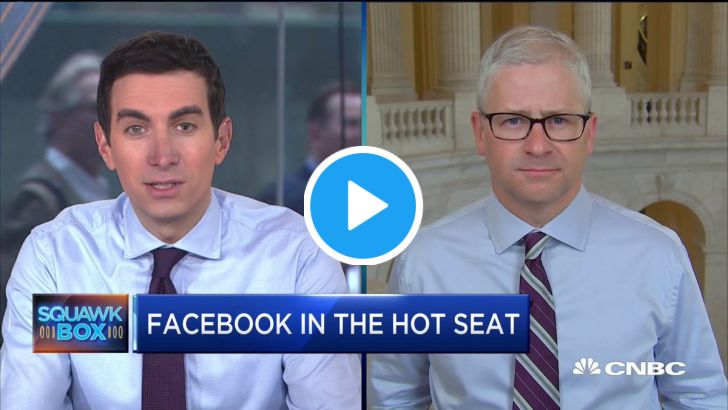Deep Dive: The Geopolitics of Bitcoin
Bitcoin is not a threat to America - it is an opportunity.
In this issue:
What does Bitcoin mean for the global political order?
What should America do about Bitcoin?
The Geopolitical Era of Bitcoin has begun
Rhetoric around Bitcoin has shifted subtly in the last year. Confident assurances that Bitcoin would eventually be crushed when governments began to regulate it have been replaced by increasingly urgent calls for governments to start regulating it. Even serious Bitcoin skeptics have started to internalize the possibility that Bitcoin is a legitimate disruptive threat to the status quo. Voices that were once dismissive of Bitcoin have started to warn about it instead.
So Jamie Dimon calls in his shareholder letter for governments to deal with "the legal and regulatory status of cryptocurrencies." Bloomberg warns the US "Don’t let China mint the money of the future." The Wall St Journal asks "Is it time to regulate Bitcoin?" Venture Capitalists wonder aloud if owning Bitcoin is unpatriotic:
The Bitcoin community is fond of a quote often misattributed to Gandhi:
“First they ignore you, then they laugh at you, then they fight you, then you win.”
What we are seeing here is the transition from the second stage to the third: it used to be easier to dismiss Bitcoin and wait for it to fall apart of its own accord. Now the threat is starting to look real and forces are beginning to muster to oppose it.
We’ve talked before about how those who compare Bitcoin to Visa are making a category error. Bitcoin is not a payment system, it is an independent monetary system. The incumbent competitors Bitcoin is threatening to disrupt are more realistically the USD, the Euro and the Renminbi. Understanding that scale is important not just to contextualize Bitcoin’s energy use, but also to understand the geopolitical scale of the disruption it could potentially unleash.
This week at an event held by the Richard Nixon Foundation Peter Thiel made headlines by describing Bitcoin as a 'Chinese financial weapon against the US.’ Here is the full quote, it’s worth listening to in its entirety:
Mr. Thiel is half-right. Bitcoin is a legitimate threat to disrupt the status quo and since America is a major beneficiary of the status quo it is reasonable to be concerned. But characterizing Bitcoin as a threat to American hegemony seems overblown to me and describing the Chinese Government as being "long Bitcoin" doesn’t make much sense at all. China has been trying to ban Bitcoin since 2013. As recently as March of this year they banned Bitcoin mining in Inner Mongolia. China’s frequent attempts to crack down on Bitcoin are so reliable it has become a meme.
It makes sense that China would oppose Bitcoin: it is an explicitly anti-totalitarian tool. It is mainly useful for securing wealth beyond the power of the state. America might be more attached to the status quo, but the kind of disruption Bitcoin is threatening is much more compatible with American values than with the animating philosophy of the CCP. In both theory and in practice the American government has been cautiously welcoming of Bitcoin and the Chinese government has been actively hostile. Bitcoin is not a Chinese financial weapon threatening American values - if anything it is the opposite.
Bitcoin is not a threat to America
Many people (Mr. Thiel included) tend to assume that a successful Bitcoin would automatically dethrone the USD as the world’s reserve currency and as a result hobble America’s international influence. I think the truth is probably a little more complicated than that.
The USD is the world’s reserve currency because of the enormous purchasing power of American consumers, the strength and size of the American financial markets, and the relative stability of the dollar as a unit of account. Most things are sold to Americans, so most things are priced in dollars. Dollars are widely used and relatively stable, so most lending/borrowing is priced in dollars.
All of these factors are self-reinforcing and none of them depend on the idea that the dollar will appreciate in value. Even if Bitcoin succeeds and becomes immensely valuable, it doesn’t invalidate any of the advantages the dollar has. If growth in value was the key feature of a reserve currency then the world’s reserve currency would be Tesla stock.
I do think that Bitcoin will diminish the power of the state by weakening capital controls and surveillance banking. That will apply equally to China and to America but it will probably weigh much more heavily on China where the government relies much more heavily on those tools. But I don’t see Bitcoin as a serious competitor for world reserve currency until long after it has grown past the price discovery stage and stabilized enough to be useful as a unit of account.
If you can’t beat ‘em, buy ‘em
There are (to a first approximation) three basic strategic responses to Bitcoin. You can try to kill it, try to ignore it or try to get out ahead of it.
As I mentioned above, China has been trying to execute the first strategy unsuccessfully since late 2013. The main thing they have accomplished is demonstrate the sharp limits on how much even a powerful, motivated government can do to discourage the use of Bitcoin. In practice governments can drive Bitcoin use underground but they can’t eliminate it - and driving it underground is in some ways only a ratification of what Bitcoin is for and capable of.
Some American politicians seem to have already internalized the fact that controlling Bitcoin is not a practical option. Here’s Congressman Patrick McHenry (a Republican from North Carolina):
If we accept that governments can’t intervene to stop Bitcoin then there are only two possible worlds: either Bitcoin is inevitable or it will fail on its own. In the latter case no particular action is needed - America can safely ignore Bitcoin and go about its business. But in the case that Bitcoin succeeds there are things that America can do to position itself to take advantage of the opportunities. Most obviously if you suspect Bitcoin will become an important asset class in the future it makes sense to start acquiring bitcoin and perhaps Bitcoin mining capacity now.
This might seem like a binary decision, but it’s actually not - you can scale up (or down) an investment in Bitcoin in proportion to the level of confidence you have that the Bitcoin experiment will succeed. In other words not investing in Bitcoin at all is synonymous with 100% certainty it will fail. To the extent that you are worried (or excited) about the possibility that Bitcoin won’t fail, you should own some.
America can hedge itself against a possible Bitcoin future in basically the same way. If Bitcoin might become the future of finance, it makes sense to cultivate Bitcoin financial services to establish leadership in that market. If Bitcoin might become critical economic infrastructure it may make sense to invest in domestic Bitcoin mining in service of national security, akin to how we invest in domestic steel production. If Bitcoin may one day be a precious asset class it probably makes sense to hold some in Treasury reserves, along with gold bars and other currencies.
For both individuals and their governments the right amount of bitcoin to own is the amount that scares you the least. If the thought of a Bitcoin future is scary, own more Bitcoin. If the thought of Bitcoin failing is scary, own less Bitcoin.
When all your fears are perfectly in balance you have invested correctly.









